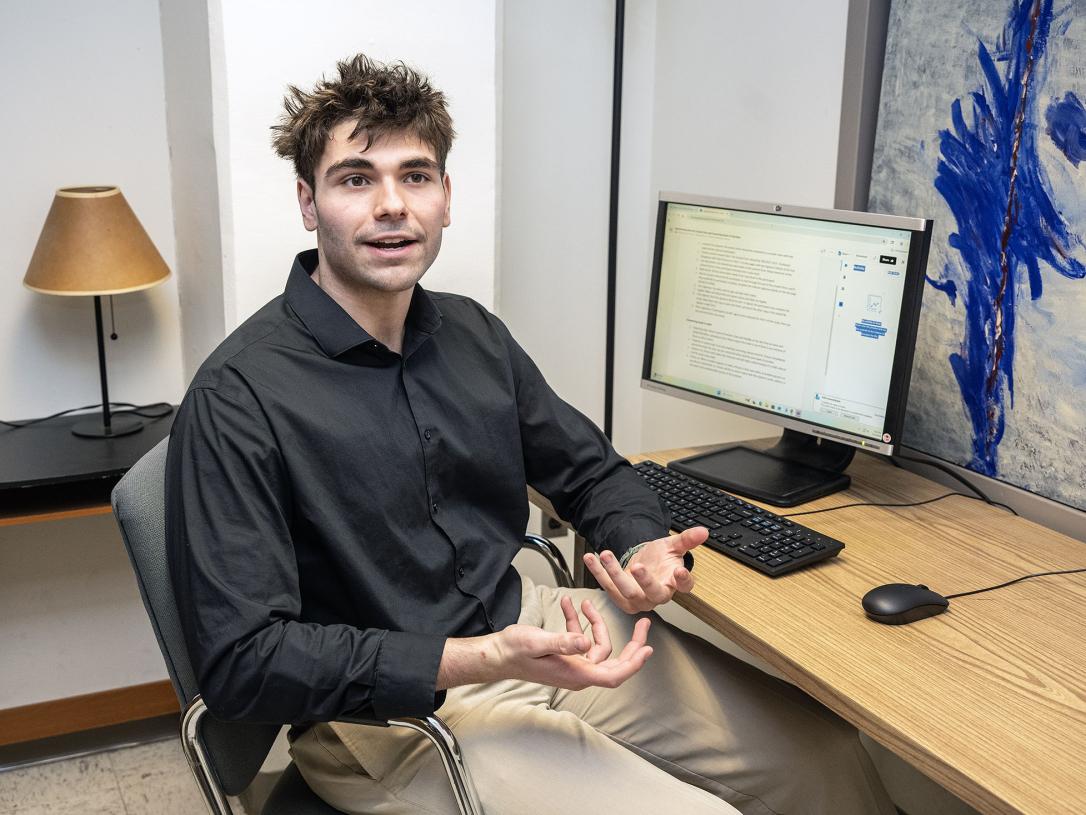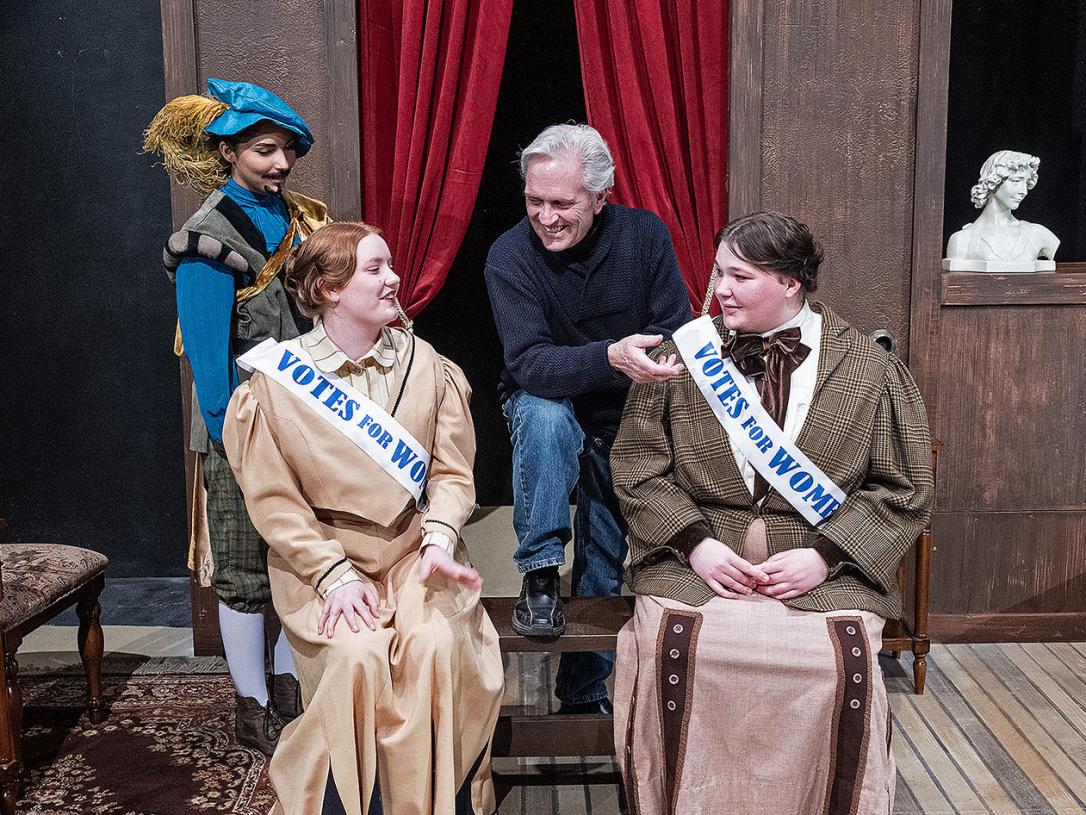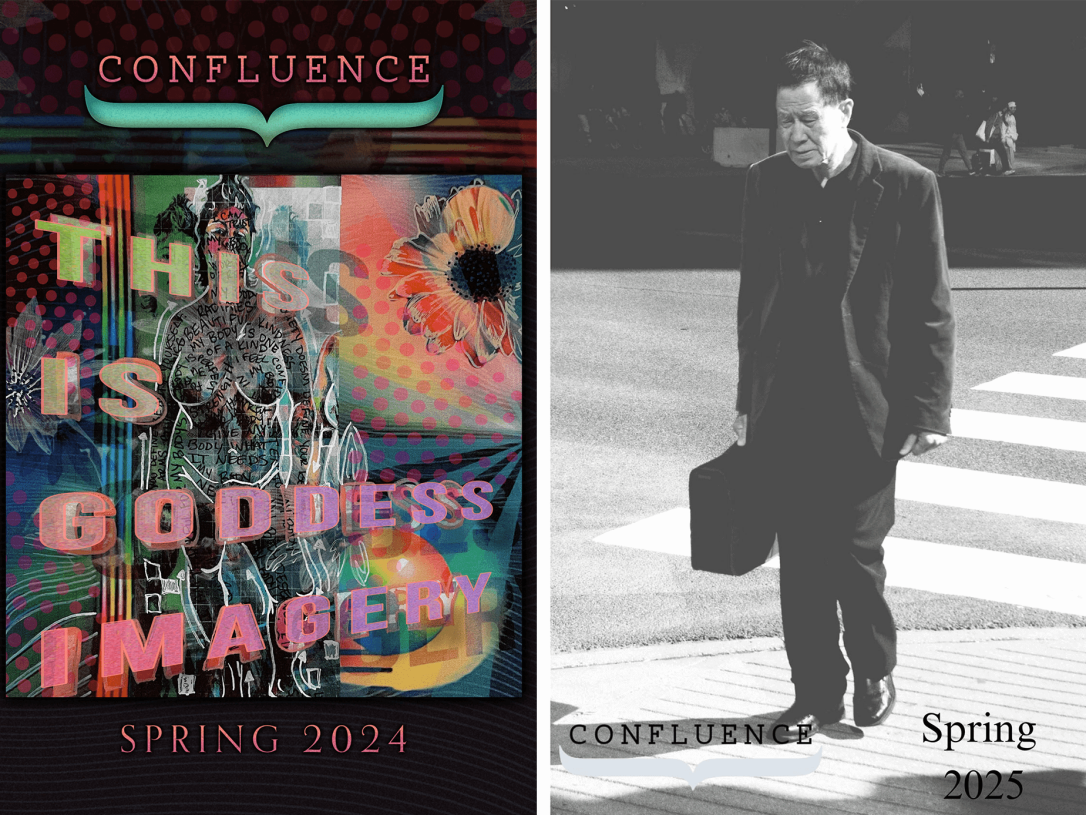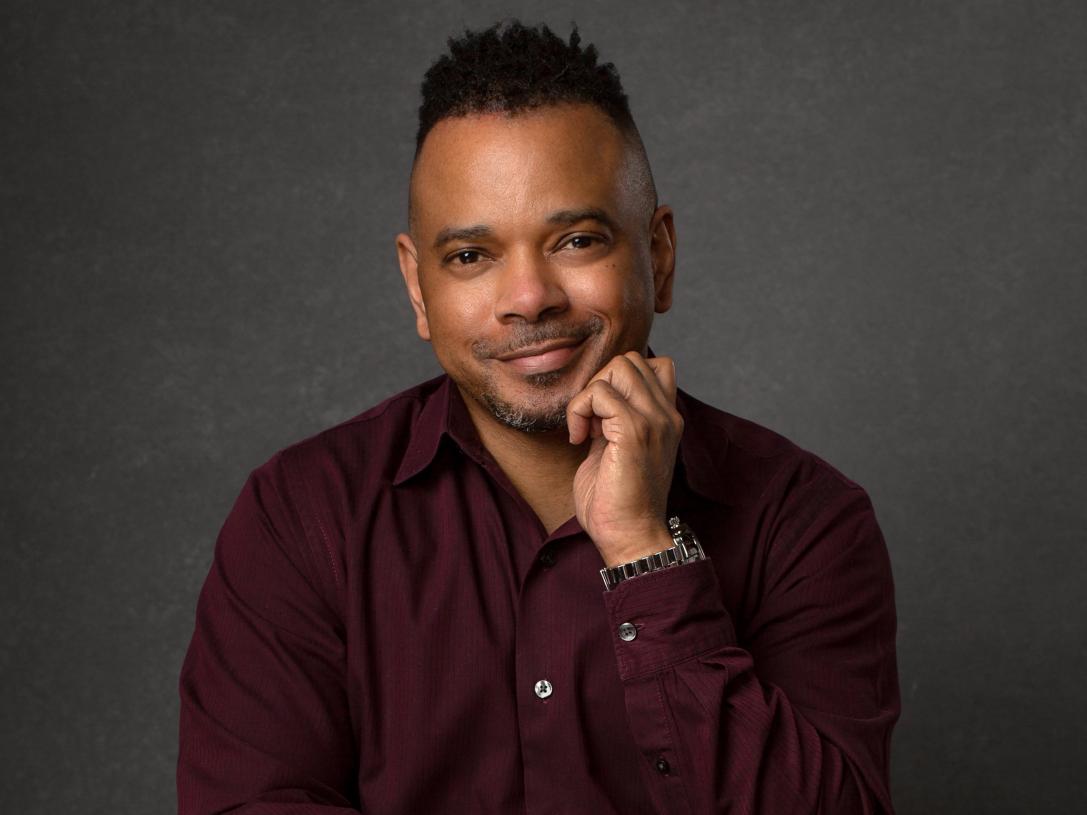
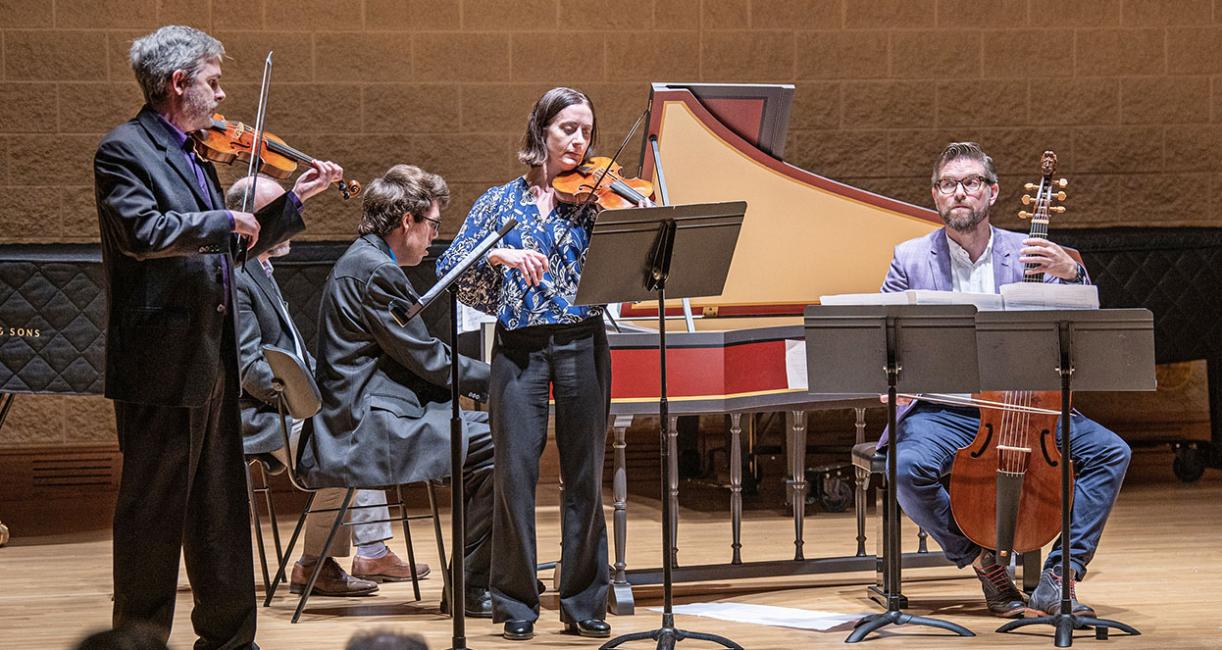
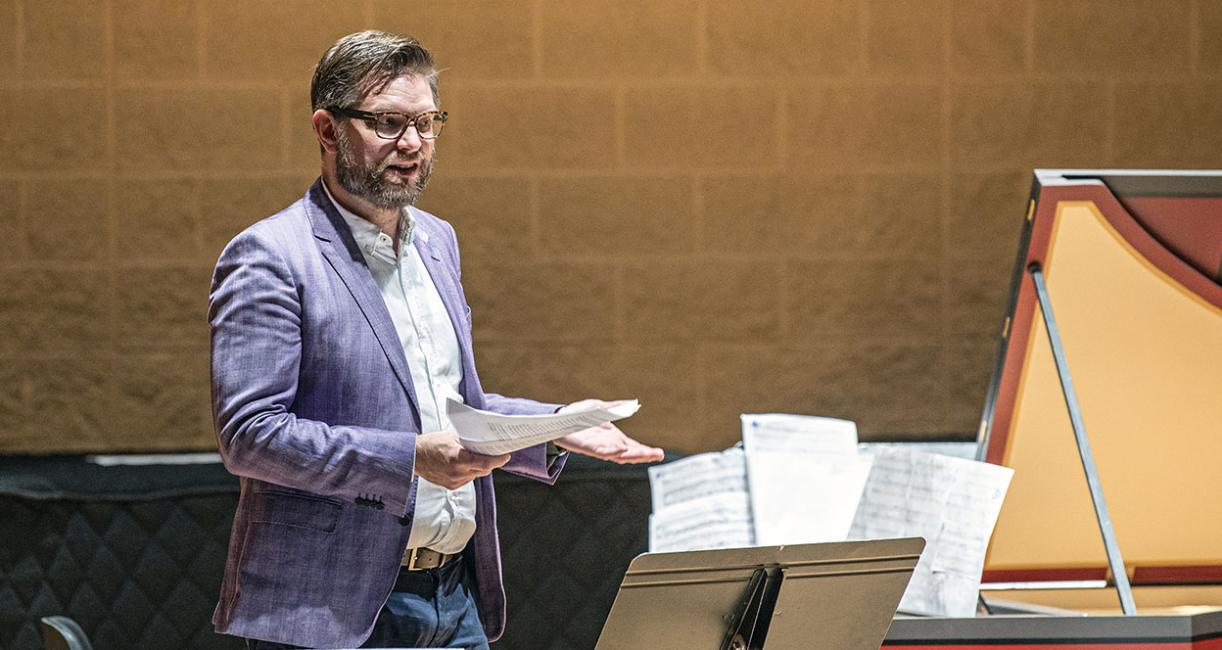
PFW-based ensemble to share love of performing historical cultural music
By Blake Sebring
November 11, 2025
As an assistant professor of music history, Purdue University Fort Wayne’s John Romey has for decades made the study of 15th–19th-century musical instruments his life’s work. He loves nothing more than getting lost in the research of historical apparatus and then trying to recreate items that have been lost for centuries based on texts, paintings, or letters between musicians.
His second favorite pastime is watching historical movies and complaining about the musicians’ inauthenticity.
“If you’re going to have someone there looking like they are playing a historical instrument, maybe hire someone who actually knows how to play the instrument so it looks somewhat like it’s supposed to,” Romey once said.
His pride and joy was recreating Renaissance-era viola de gamba from France a few years ago.
And now Romey has shared his love of ancient instruments with PFW student Andrew Danielson, who has fallen in love with playing the harpsicord. The duo will be part of the Kekionga Early Music Collective in a free, family friendly public concert of mestizo baroque music on Sunday starting at 1 p.m. at the Allen County Public Library. The ensemble played two previous concerts, including last April on campus to highlight the music of women composers from the mid-1600s to the early 1700s in Italy and France.
This time, the focus is more Latin America-style music, brought to this hemisphere under the influence of European colonizers. Romey and Danielsen will be joined in the ensemble by singer Julie Lyn Barber, assistant professor of musical theatre and acting; Baroque violinists Jason and Emily Thompson; guest baroque guitar player Brian Kay; and singer William Sauerland, PFW’s director of choral studies.
“The Kekionga Early Music Collective will perform music that is rarely heard in this region, expanding how we think about the baroque era,” said Esteban Coria, bilingual program and partnership specialist for the ACPL. “It’s important because it highlights voices and traditions that are often overlooked and connects our community with cultural expressions that remain meaningful today. Equally significant is the cultural collaboration with Purdue Fort Wayne’s music department—an amazing community partner whose expertise makes this program possible and meaningful.”
The concert is about having the chance to play, but also to share cultural history.
“Part of it is it trying to get at what music was in the past, and how do we better understand it? By actually making it,” Romey said. “I think early music is important to understand the past and understand the musical heritage of the past, and if we can understand our past, we can understand our present.”
Even better, Romey said, the music the ensemble will be playing has been neglected and is in danger of possibly being forgotten. A concert like this, he said, can provide context.
That’s partly why Danielson came into Romey’s office two years ago. Intrigued by taking Romey’s music history class, Danielson asked if he could take an independent study on the unique style of musical temperament from the era. Midway through the semester, Romey said if Danielson really wanted to learn about and understand the music, he needed to play it.
Because Danielson is a keyboardist, Romey suggested the harpsicord, and they put one together using a 30-year-old kit from storage that had been donated to the university.
Developing the patience and skill took time for Danielson, but he was delighted. The ensemble concert is an opportunity to show how far he has advanced in terms of thinking in different ways about music as well as performing.
“I think this concert provides the ensemble a great opportunity to showcase what all is available at PFW, not just for the students but for the public,” Danielson said. “We have so many concerts, recitals, music festivals, and experiences that are offered. By holding a concert at the ACPL, I have the opportunity to showcase to a whole new audience what is available at PFW. Hopefully folks will be curious to learn more of the other events on campus.”
Danielson said the music the ensemble will play Sunday says different things to him.
“It indicates to me that humanity since the beginning of its history has always been a creature of curiosity and skill,” Danielson said. “Even though this music was written hundreds of years ago, I can see the thought, intent, and beautiful craftsmanship a person made to write the notes I play in 2025.”
Hearing that makes Romey smile.
